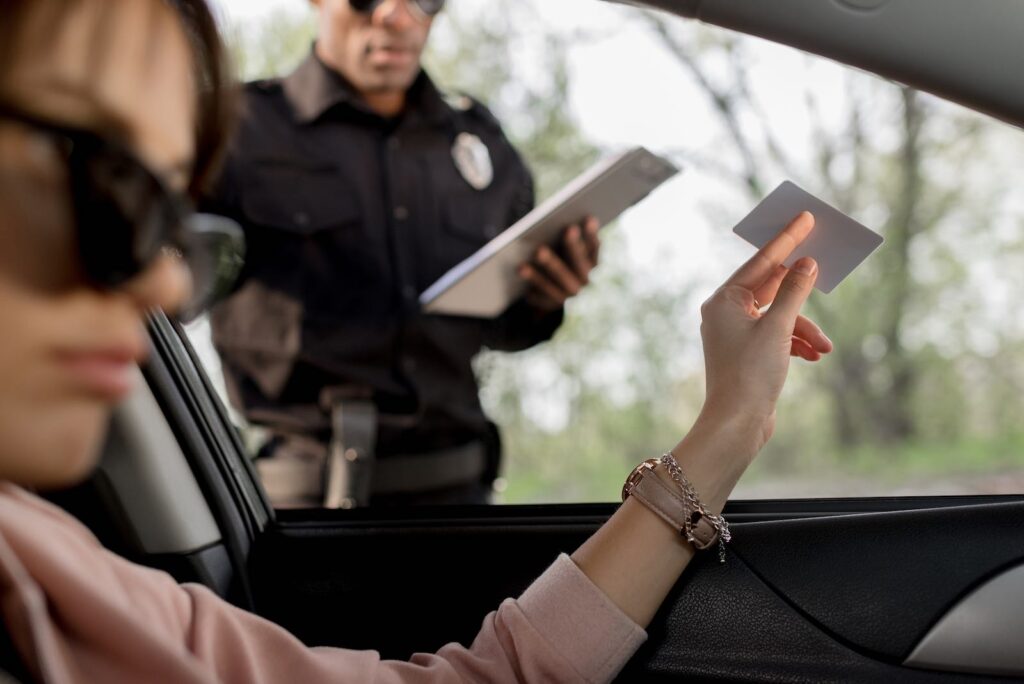If you’ve been slapped with a speeding ticket in Utah, you may wonder about the next steps and how this could affect your driving record and wallet. Our straightforward guide will walk you through understanding the fines, the potential impact on your insurance, and the legal avenues you can take to challenge your ticket. Read on for essential tips to manage and possibly mitigate the repercussions of your Utah speeding ticket.
Key Takeaways
- Staying within Utah’s legally enforceable speed limits, up to 80 mph on interstate highways and 65-70 mph on urban highways, prevents hefty fines and increases road safety.
- A Utah speeding ticket is a serious legal document; thoroughly understanding the detailed information provided, ensuring its accuracy, and knowing your options to pay or contest it is vital for a smooth resolution.
- Consulting with a legal expert can provide strategic advantages if you’re contesting a speeding violation and can help negotiate better terms or reduced penalties with knowledge of traffic laws.
Understanding Utah’s Speed Limits
The speed limits in Utah are not random figures posted on roadside signs but rather meticulously determined thresholds intended to protect everyone using the road. Commonly, on urban highways such as HWY7 and the 15, you’ll find speed limits set at 65 or 70 miles per hour. Meanwhile, the maximum limit for interstate highways within the state is between 75 and 80 miles per hour.
It’s important to realize that these speeds are more than mere advisories. They represent legally binding maximum speed limits. Failure to adhere to them can result in significant penalties for speeding drivers, including substantial fines, among other punitive measures. Thus, all individuals—locals and visitors alike—must strictly observe these guidelines to avoid complications associated with speeding violations.
Recognizing Speed Limit Signs
As drivers, we are responsible for being aware of our surroundings, including recognizing speed limit signs. These signs are marked and strategically placed to avoid any confusion. They serve as a constant reminder for drivers to keep their speed in check. Ignoring these signs not only puts you at risk of a speeding ticket, but also increases the chances of accidents and traffic fatalities.
Thus, while driving, be aware of these signs and adjust your speed accordingly. Remember, the posted speed limit is there for a reason—to keep you and others safe on the road.

Consequences of Exceeding the Posted Speed Limit
Exceeding the posted speed limit is not merely a matter of facing fines. The increased risk of accidents when speed limits are exceeded often results in car crashes, highlighting the severe consequences of such actions. In Utah, speeds exceeding 100 mph may escalate to reckless driving charges, a severe infraction with consequences that can significantly inflate settlement costs. Such high-speed endeavors increase the risk of car accidents, which might lead to bodily harm and damage to property. The repercussions extend beyond immediate financial penalties, potentially affecting your driving record, insurance premiums, and personal liberties.
Thus, it’s prudent to comply with speed limits. Doing so protects both you and those around you from unnecessary dangers.
The Anatomy of a Speeding Ticket in Utah
In Utah, receiving a speeding ticket represents more than simply acquiring a piece of paper. It’s an essential legal document packed with vital details that must be thoroughly understood. These details encompass:
- Identifying information of the transgressor, including their name, address, and driver’s license number
- A description of the purported violation
- Details regarding court proceedings, such as the venue and scheduled date for either appearance or payment settlement
- The specific statute or code references about the offense help dive into particular statutes and associated sanctions.
This in-depth data is essential for understanding your infringement and deciding on an appropriate action. Don’t just casually toss this ticket into your vehicle’s glove box without adequately considering it.
Deciphering Your Speeding Ticket
To effectively manage a speeding ticket, it’s crucial to grasp the particulars listed on the citation. Confirming that details such as your personal information, vehicle specifics, offense statute or code number, and the exact nature of the violation are correct is essential.
Errors on these items could considerably impact legal outcomes and might even lead to having the ticket dismissed. As such, scrutinizing your speeding ticket for any mistakes is essential in constructing a defense strategy should you contest it in court.
Legal Terminology You Should Know
Understanding the legal jargon associated with speeding tickets is crucial for effectively managing such situations. In Utah, traffic violations are categorized into two types: infractions that typically carry a fine of no more than $750 without incarceration and class C misdemeanors which may lead to imprisonment for up to 90 days alongside fines that can be similar in amount.
If you’re considering challenging a speeding ticket, it could involve discussing with the prosecuting attorney or taking your case to court. During trial proceedings, evidence will include statements from both the issuing officer and any other relevant witnesses. While this process might seem daunting at first glance, being well-versed in these legal concepts equips you with understanding your options under the law and could help steer you away from severe consequences.
Steps to Take After Receiving a Speeding Ticket
Encountering a speeding ticket can be unnerving, but maintaining composure is essential. Start by meticulously examining the details provided on the ticket, such as the name and location of the court, along with critical timelines for either payment or instructions on a court appearance. Subsequently, deliberate over your potential action: you may accept responsibility and pay the penalty or contest it by pleading not guilty and potentially requesting trial proceedings.
Comply with all deadlines outlined in your citation regarding fine settlement or mandatory court appearances. Failure to do so will help avoid any additional legal difficulties. Neglecting this summons altogether or missing payment due dates could lead to more severe consequences—prompt attention is advised.
Reviewing Your Ticket for Errors
It is crucial to scrutinize your ticket for inaccuracies, as these could provide a basis for challenging it. Small mistakes related to your personal information, the precise details of your vehicle, or the accurate statute or code number corresponding to the alleged offense might be advantageous if you decide to contest. Pay close attention when examining your personal information on the citation and the detailed description of the violation in search of errors.
If you find any discrepancies, it’s advisable to seek advice from a legal professional. Such inaccuracies can significantly influence how your case unfolds.
Considering Your Options: Pay or Contest?
After examining your ticket, you must decide to pay the penalty or contest the citation. Take this choice seriously by weighing the evidence, assessing whether the challenge will likely succeed, and considering how it could affect your driving record and insurance premiums.
If you choose to fight against a traffic ticket, inform the court before the deadline stated on your citation and prepare to make your case in court. On the other hand, if paying is preferable, most fines can quickly be resolved online or through mail without appearing before a judge.
Remember that while the decision ultimately rests with you, seeking advice from a legal expert about the possible ramifications of whichever path you select is considered prudent.
How to Contest a Speeding Ticket in Utah
Should you challenge your speeding ticket, be ready to undertake the legal process. You must appear in court to declare a ‘not guilty’ plea. After this step, there is a chance to negotiate with the prosecutor or move forward with a trial. Successfully contesting major moving violations by pleading ‘not guilty’ may result in dismissal of the ticket if mistakes are found on it or if you present a strong defense.
Remember that fighting against a speeding citation requires careful preparation and comprehensive knowledge of the legal system. It’s certainly not an effortless endeavor.
Preparing Your Defense
Commencing a solid defense requires meticulously examining the particulars of the speeding ticket and assembling evidence that corroborates your account. Evidence might comprise scene photos, accounts from witnesses, and any additional substantiating information. It’s essential to seek counsel from an attorney for expert guidance on what evidence is necessary to dispute a speeding ticket effectively and to craft a solid defensive plan.
Such legal guidance can be priceless in strategizing how to argue your case for enhancing the probability of securing a favorable outcome.
Understanding Court Procedures
Grasping the nuances of court protocols is essential for a strong defense presentation. Traffic cases in Utah’s justice courts are managed uniquely. Certain violations necessitate showing up in court, yet some do not.
Should you challenge a speeding citation and it goes to trial, there will be a chance for the citing officer and any potential witnesses to give their accounts. This prospect could feel daunting. Arming yourself with knowledge about these processes allows you to approach them assuredly.
The Role of a Car Accident Lawyer in Speeding Violations
When confronted with the repercussions of a speeding infraction, it might be unclear whether to seek assistance from car accident lawyers, who play a crucial role in investigating if a vehicle was speeding at the time of the accident and determining negligence based on speed. These legal professionals are also vital in assisting accident victims, providing them with the necessary support and guidance to navigate the aftermath of an accident. They are instrumental in filing a car accident claim and managing car accident claims, ensuring that victims receive fair compensation for their losses. Car accident victims particularly benefit from legal representation, which is essential for navigating the complexities of car accident claims and securing just compensation. In cases involving fatal crashes, lawyers play a critical role in representing the families of the deceased, helping them to seek justice and compensation for their tragic losses. Additionally, for those who have suffered severe injuries, car accident lawyers are indispensable in fighting for the compensation needed to cover medical expenses, lost wages, and other damages. Nevertheless, especially when partnering with an experienced car accident attorney, these legal professionals can prove indispensable in guiding you through judicial complexities and effectively settle your claim related to the vehicle collision. They are adept at negotiating with insurance providers to prevent disproportionately low settlements and strive to obtain the highest possible compensation on your behalf. It’s critical to understand that insurers primarily look after their monetary interests by proposing minimal settlement offers.
Securing representation from such an attorney ensures multiple benefits.
- Protection against personal liability surpassing what your policy covers
- Competent management of intricate legal challenges
- Achievement of prompt resolutions favoring your situation
For individuals involved as victims in a vehicular mishap who aim to file a personal injury claim, enlisting the services of a car accident lawyer immediately post-accident scene is advantageous for these reasons.
When to Consult a Car Accident Attorney
When a car accident leads to significant injuries, substantial property destruction, or personal injury cases necessitate it, consulting an attorney specializing in vehicular accidents can be crucial. Such legal professionals are adept at formulating strong arguments for damages, navigating the intricacies of legal procedures, and ensuring that insurance companies do not exploit the situation.
Palmer Litigation is located in St. George, Utah. It is an establishment providing an extensive array of legal assistance and has a history of securing jury decisions ranging from $300k to upwards of 1.6 million dollars. It’s also important to note that there’s a four-year time frame within which one can initiate a personal injury lawsuit in Utah. This period begins on the date the incident occurred.
How Legal Representation Can Impact Your Case
Representation by an attorney can significantly influence the result of your legal situation. Their capabilities include:
- Utilizing their knowledge of traffic regulations to secure improved conditions or diminished sanctions
- Engaging with judicial entities for the possibility of decreased charges or substitute punitive measures
- Offering a tactical edge during court proceedings
- Assisting in lessening future repercussions associated with a speeding citation
You should seek advice from a law professional before interacting with insurers regarding a speed-related infraction, as they are equipped to act on your behalf and protect against potential hazards.
Mitigating the Impact of Speeding Tickets on Insurance Rates
Receiving a speeding ticket can notably affect your car insurance costs. In Utah, receiving such a ticket is usually followed by an approximate 24% rise in car insurance premiums. The extent of the violation and the driver’s past infractions could influence how much one pays.
You are not obligated to inform your insurance company immediately after you’ve been cited for speeding. They will probably find out once they examine your driving record during policy renewal. Engaging in an effective dialogue with your insurer and considering various options that might help keep your premiums at bay is crucial.
Communicating with Your Insurance Company
When dealing with a speeding violation, it’s critical to approach conversations with your insurance company carefully. These companies seek to reduce the value of claims and avoid payouts whenever possible. Before providing any recorded statements about the incident, it is wise to consult with a legal professional who can advise you on how best to convey information in a way that doesn’t compromise your potential claim.
Strategies to Maintain Lower Premiums
There are numerous tactics you can consider to keep your insurance premiums at a lower rate after getting a speeding ticket. If permissible by the laws in your area, participating in an online defensive driving class could lessen the cost of your traffic citation. Other methods to potentially decrease car insurance rates include pursuing discounts, consolidating multiple policies, insuring newer vehicles with advanced safety technology, sustaining good academic standing if you’re a student or maintaining an unblemished driving history.
Another set of approaches that might help minimize expenses associated with car insurance after a speeding violation includes shopping around for competitive quotes and thinking about opting for higher deductibles.
Financial Implications of Speeding Tickets
Speeding infractions can have a substantial economic impact. In Utah, for instance, a small speeding offense might trigger an insurance premium surge of between 5% and 15%, and graver violations could push that increase to over 25%. These increased premiums remain in effect for three to five years. The cost of speeding tickets fluctuates depending on the county and is influenced by additional surcharges related to the driver’s history and details about the speeding incident.
Acknowledging these steep financial repercussions may serve as a deterrent for drivers, encouraging them to adhere strictly to speed limits, curtail future incidents involving excessive speeds, and help reduce fatal road accidents.
Calculating the True Cost of a Speeding Ticket
A speeding ticket’s real expense extends beyond the immediate penalty incurred. It encompasses the enduring effect on your vehicle insurance premiums as well. In Utah, citations for speeding detail how much a driver has surpassed the speed limit, and penalties are correspondingly aligned with these distinct excess speed brackets.
An upsurge in yearly automobile insurance premiums often follows a record of speeding infractions. An unblemished driving history can help cushion this hike after one’s initial offense. Thus, contemplating every element is critical when assessing the genuine financial repercussions of receiving a ticket for exceeding the speed limit.
Ways to Reduce Expenses After a Speeding Violation
If you’ve been issued a speeding ticket, there are multiple steps you can take to alleviate the associated financial burden. Begin by seeking quotes from various car insurance companies to secure more cost-effective coverage. It’s essential as well to keep your credit standing healthy. Since insurers frequently utilize credit-based scores to determine insurance rates, this could lead to reduced costs after a speeding violation.
Consider these tactics to diminish the premiums on your auto insurance and mitigate the economic impact induced by receiving a speeding citation.
- Opting for higher deductibles when it comes down to comprehensive or collision protection
- Comparing offerings from various insurance carriers
- Completing an approved defensive driving class that might render you eligible for discounts
- Ensuring your driving history remains spotless henceforth and steering clear of additional infractions
Adopting these measures could be effective against unjustifiably high charges on your vehicle’s indemnity plan following a traffic penalty.
Avoiding Future Speeding Tickets
It’s essential to combine awareness, adherence to safe driving habits, and taking lessons from previous infractions to prevent future speeding. To ensure you abide by speed regulations:
- Continually check your speedometer to keep track of and regulate your driving pace.
- Use cruise control when suitable for keeping a steady velocity.
- Plan and set off early towards your destination. Having extra time can lower the urge to accelerate when delays occur.
Adhering to these strategies will likely reduce the likelihood of being ticketed for speeding again.
Incorporating defensive driving methods such as limiting distractions while on the road and ensuring an adequate distance between vehicles contributes significantly to a safer drive and diminishes the chance of traffic violations, including exceeding speed limits.
Safe Driving Practices and Technology Aids
Safe driving practices and technology aids can help prevent speeding violations. Here are some simple practices to follow.
- Regularly check your speedometer.
- Engage cruise control
- Minimize distractions
- Maintain a safe following distance
Identifying personal triggers that lead to speeding, such as stress or anger, can also help drivers address the root cause and avoid future speeding tickets.
Moreover, technology aids like speed limit reminders and GPS tracking can offer additional support in complying with speed limits.
Learning from Past Mistakes
Understanding that speeding was an error is essential for not repeating the same misstep. Pinpointing what triggered ticket issuance, be it distractions or poor judgment, can guide one toward making precise adjustments in behavior.
Incorporating strategies like setting out ahead of time for engagements or using cruise control during freeway travel may help prevent instances of breaking speed limits. Remember, drawing lessons from previous transgressions and consciously deciding to abide by traffic laws is invariably the best method to avoid subsequent speeding citations.
Summary
Understanding Utah’s speed limits and the consequences of exceeding them is crucial for all drivers. Recognizing the importance of the details on a speeding ticket, knowing the steps to take after receiving one, and understanding how to contest a ticket are key components in navigating a speeding violation. Legal representation can significantly impact your case, and consulting a car accident lawyer in certain circumstances can be beneficial. It’s also important to consider the financial implications of speeding tickets and explore ways to mitigate the impact on insurance rates. Lastly, adopting safe driving practices, learning from past mistakes, and leveraging technology aids can help avoid future speeding tickets.
Frequently Asked Questions
What are the speed limits on Utah’s highways?
On urban highways in Utah, you will typically encounter speed limits set at 65 to 70 miles per hour. When traveling on interstate highways within the state, expect higher speed limits ranging between 75 and 80 miles per hour.
Adhere to the posted speed limit signs to ensure a safe driving experience for everyone.
What information does a speeding ticket in Utah contain?
In Utah, a speeding citation includes the offender’s personal details, the specifics of the purported infraction, and data about either the court appearance or payment due date. It also features the number about the statute or code allegedly violated.
How can I contest a speeding ticket in Utah?
If you’re challenging a speeding ticket in Utah, you must attend court and assert your innocence by pleading “not guilty.” This will then lead either to negotiations or a full trial. Ensure you have developed a robust defense and familiarized yourself with the relevant courtroom processes.
Wishing you the best of luck!
How can a car accident lawyer help in a speeding violation case?
A lawyer specializing in car accidents can guide you through the complexities of the legal system, manage insurance discussions, and advocate on your behalf during a case involving a speeding violation. They aim to secure the highest possible settlement for you while ensuring you are not unjustly liable for any damages incurred.
How can I avoid future speeding tickets?
To prevent receiving additional tickets for speeding, constantly check your speedometer, utilize cruise control for maintaining a consistent pace, ensure you depart in advance to reach places on time, practice defensive driving skills, recognize individual reasons that make you exceed the speed limit and take advantage of technological tools such as reminders about speed limits.
Implementing these strategies will help you avoid traffic citations and ensure your safety while driving.
Palmer Litigation Team




